
Venezuela crude production inches back up
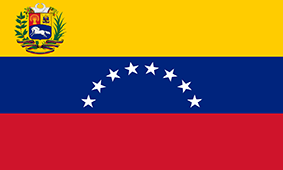
But PdV has not overcome a tanker deficit that delayed exports, filling operational storage to capacity and forcing the suspension of upstream and blending operations last month.
Senior oil ministry and PdV officials say the escalation of US sanctions against PdV on 5 August caused the tanker shortage that forced the company to curtail production.
ExxonMobil's early October decision to ban the use of hundreds of tankers that loaded or discharged cargoes at PdV terminals since October 2018 have aggravated the tanker deficit, a mid-level official in PdV's marketing division said.
PdV's crude output averaged about 730,000 b/d on 18 October compared with about 650,000 b/d at the end of September as blending restarted at the PetroSinovensa and PetroPiar joint ventures at the Jose complex in Anzoategui state, the officials said.
Extra-heavy crude production from the Orinoco oil belt rose from about 234,000 b/d on 1 October to 316,000 b/d on 18 October, accounting for over 43pc of Venezuela's total crude production at mid-month, the officials said.
All of the increase in Orinoco division output came from PdV's PetroSinovensa and Petropiar joint ventures, which accounted for a combined 123,000 b/d or 40pc of the Orinoco upstream division's mid-October output of 316,000 b/d, the officials said.
Legacy Maracaibo fields such as Bachaquero and Lagunillas in Zulia state registered slight declines because of oil field infrastructure and personnel problems in PdV's western division.
Output from Zulia averaged about 150,000 b/d as of 18 October, although the data is potentially inflated, PdV officials in Caracas say.
"We're trying to raise production, but we don't have the necessary infrastructure and people," a western division official said.
Eastern division output concentrated in Monagas state was about 260,000 b/d at mid-month, but operations are hindered by the same problems affecting the west.
These output figures are preliminary and involve only crude. Final oil ministry figures for all of October likely could be higher as more Orinoco production comes back up, thanks partly to the shipments to Cuba.
PetroSinovensa, a joint venture in which PdV and Chinese state-owned CNPC have stakes of 51pc and 49pc respectively, was producing 35,000 b/d of Merey crude blend as of 18 October, according to preliminary figures compiled by the Orinoco division.
A Chinese official at PetroSinovensa said the venture hopes to double blend output to at least 70,000 b/d by early November.
But capacity expansion plans announced by President Nicolas Maduro in August are on hold pending settlement of over $52mn PdV owes Chinese contractor HuanQiu Contracting and Engineering since November 2018, the Chinese official said.
"PdV said overdue debts would be paid in full this month, but we're still waiting," the Chinese official added.
HuanQiu, in what appears to be a tactical move to pressure PdV for prompt payment, notified all of its domestic suppliers this week that it is unilaterally canceling their contracts due to operating difficulties created by PdV's arrears.
Petropiar, one of four upgraders built by foreign companies in the late 1990s to upgrade Orinoco extra-heavy crude into sweet syncrude mainly for the US market, was producing about 88,000 b/d of Merey blend as of mid-October compared with about 100,000 b/d in early September before an export backlog and lack of operational storage capacity forced PdV to shut down the plant.
Chevron, which just received a renewal of its US sanctions waiver, holds a 30pc stake in PetroPiar, which was refitted during first-half 2019 to blend Orinoco extra-heavy crude with light domestic grades Mesa and Santa Barbara to produce the Merey blend traditionally favored by Indian and Chinese refiners.
PetroPiar originally was programmed to reach 170,000 b/d of Merey by the end of August, but that deadline has been delayed until early 2020, the Orinoco division official said.
PdV's 140,000 b/d PetroMonagas joint venture with Russia's Rosneft and the 200,000 b/d PetroCedeno project with European partners Total and Equinor have been out of service for months.
Both facilities had been scheduled to start producing Merey blend in August. "We're still working to overcome storage and tanker capacity restrictions," the Orinoco official said.
PdV's wholly owned 102,000 b/d Petro San Felix upgrader has been mothballed since late 2017 and its core infrastructure is deteriorated for lack of maintenance. "Petro San Felix is out of service indefinitely, like our refineries," the Orinoco division official added.


Alba Discloses its Financial Results for the Second Quarter and H1 of 2025

US slaps tariffs on 1-kg, 100-oz gold bars: Financial Times

Copper price slips as unwinding of tariff trade boosts LME stockpiles

Codelco seeks restart at Chilean copper mine after collapse

Uzbek gold miner said to eye $20 billion value in dual listing

Hudbay snags $600M investment for Arizona copper project

NextSource soars on Mitsubishi Chemical offtake deal

BHP, Vale offer $1.4 billion settlement in UK lawsuit over Brazil dam disaster, FT reports

Australia weighs price floor for critical minerals, boosting rare earth miners
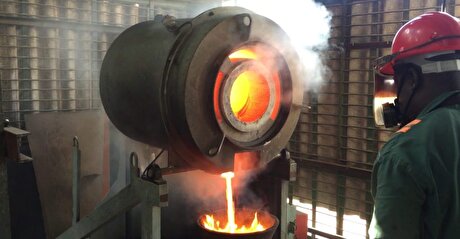
Zimbabwe labs overwhelmed as gold rally spurs exploration, miner says
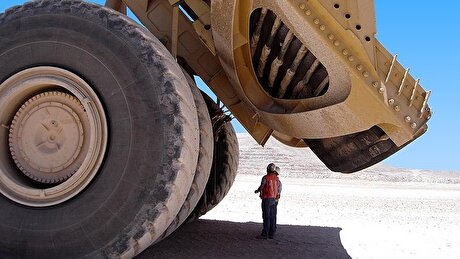
Cochilco maintains copper price forecast for 2025 and 2026
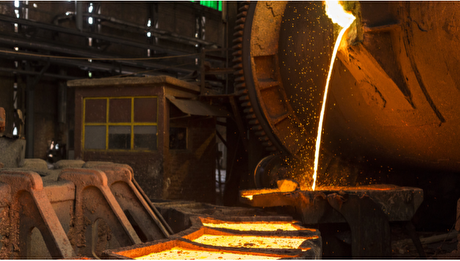
Adani’s new copper smelter in India applies to become LME-listed brand

HSBC sees silver benefiting from gold strength, lifts forecast
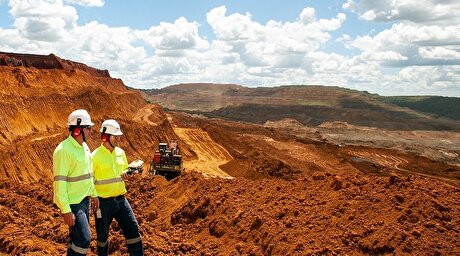
Mosaic to sell Brazil potash mine in $27M deal amid tariff and demand pressures
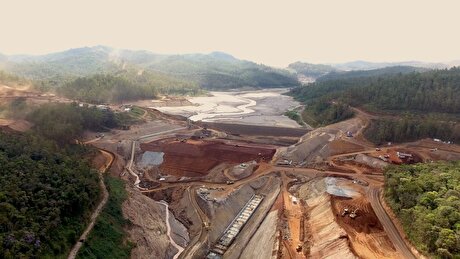
Samarco gets court approval to exit bankruptcy proceedings

Hudbay snags $600M investment for Arizona copper project

Discovery Silver hits new high on first quarterly results as producer
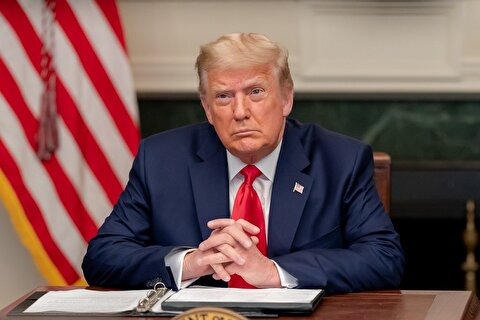
Trump says gold imports won’t be tariffed in reprieve for market

AI data centers to worsen copper shortage – BNEF

Cochilco maintains copper price forecast for 2025 and 2026

Adani’s new copper smelter in India applies to become LME-listed brand

HSBC sees silver benefiting from gold strength, lifts forecast

Mosaic to sell Brazil potash mine in $27M deal amid tariff and demand pressures

Samarco gets court approval to exit bankruptcy proceedings

Hudbay snags $600M investment for Arizona copper project

Discovery Silver hits new high on first quarterly results as producer

Trump says gold imports won’t be tariffed in reprieve for market

AI data centers to worsen copper shortage – BNEF














